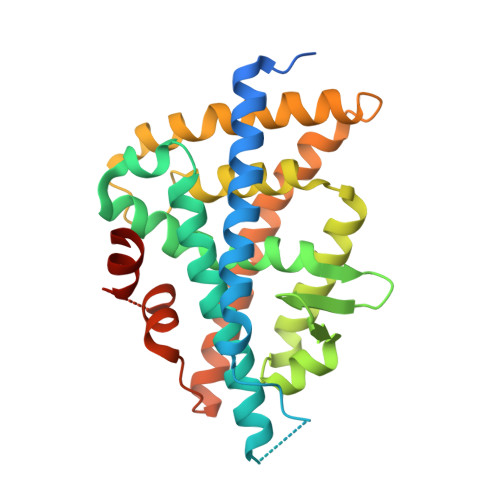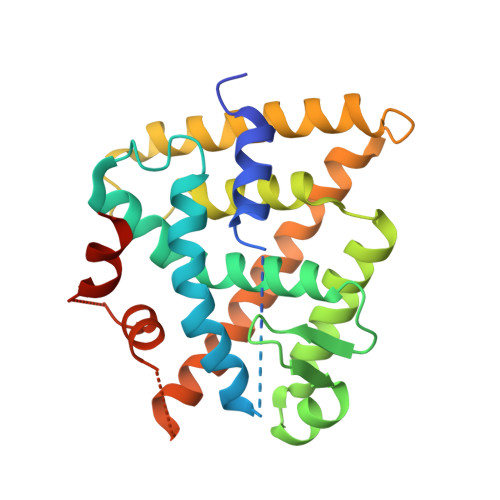Brain penetrant liver X receptor (LXR) modulators based on a 2,4,5,6-tetrahydropyrrolo[3,4-c]pyrazole core.
Tice, C.M., Noto, P.B., Fan, K.Y., Zhao, W., Lotesta, S.D., Dong, C., Marcus, A.P., Zheng, Y.J., Chen, G., Wu, Z., Van Orden, R., Zhou, J., Bukhtiyarov, Y., Zhao, Y., Lipinski, K., Howard, L., Guo, J., Kandpal, G., Meng, S., Hardy, A., Krosky, P., Gregg, R.E., Leftheris, K., McKeever, B.M., Singh, S.B., Lala, D., McGeehan, G.M., Zhuang, L., Claremon, D.A.(2016) Bioorg Med Chem Lett 26: 5044-5050
- PubMed: 27599745
- DOI: https://doi.org/10.1016/j.bmcl.2016.08.089
- Primary Citation of Related Structures:
5KYA, 5KYJ - PubMed Abstract:
Liver X receptor (LXR) agonists have been reported to lower brain amyloid beta (Aβ) and thus to have potential for the treatment of Alzheimer's disease. Structure and property based design led to the discovery of a series of orally bioavailable, brain penetrant LXR agonists. Oral administration of compound 18 to rats resulted in significant upregulation of the expression of the LXR target gene ABCA1 in brain tissue, but no significant effect on Aβ levels was detected.
Organizational Affiliation:
Vitae Pharmaceuticals, 502 West Office Center Drive, Fort Washington, PA 19034, USA.
















